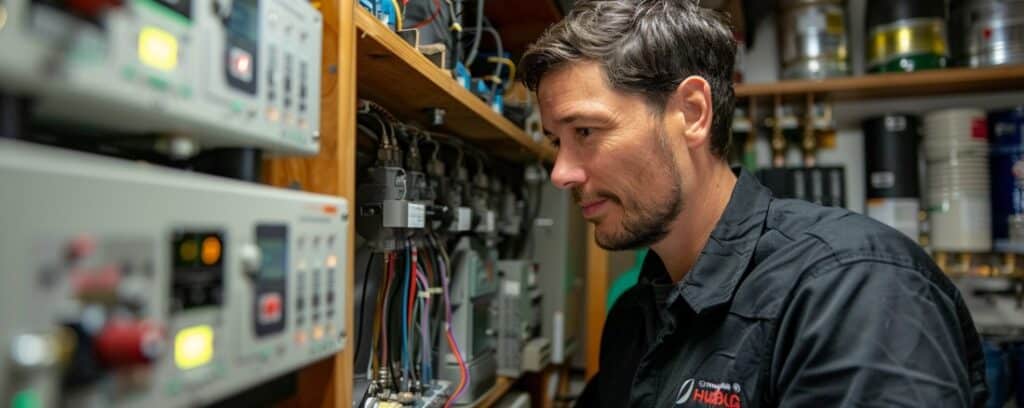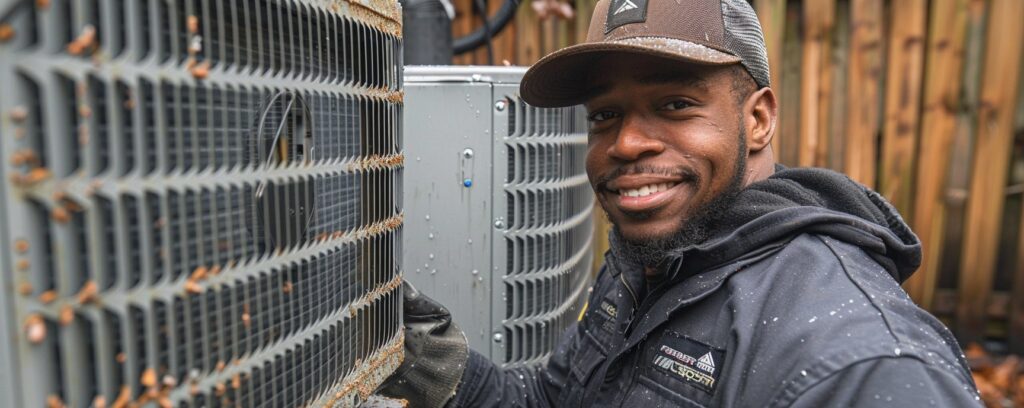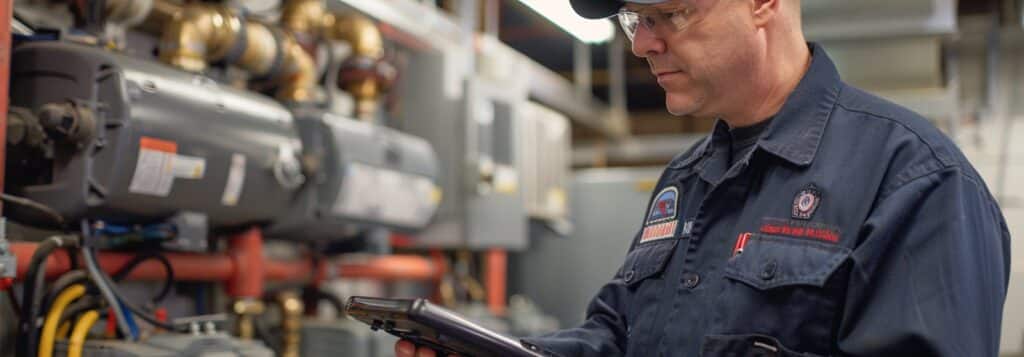Welcome to HVAC Trade Schools
HVAC Trade Schools is the gateway to HVAC education and a promising career in the heating, ventilation, air conditioning, and refrigeration (HVAC/R) industry. No matter if you’re just beginning your journey or looking to advance your career, HVAC Trade Schools is your partner in achieving professional excellence. Join us, and start shaping your future today.
Find the Best HVAC Trade School for You
Explore a wide range of HVAC school options to find the program that perfectly matches your career ambitions and sets you on the path to success in the dynamic world of heating, ventilation, and air conditioning.

HVAC Schools
Explore a wide range of HVAC school options to find the program that perfectly matches your career ambitions on the path to success in the dynamic world of heating, ventilation, and air conditioning.

HVAC Licensure
Discover the key steps to HVAC licensure with our detailed guide, tailored to help you achieve certification and excel in the heating, ventilation, and air conditioning industry.

HVAC Career Guides
Unlock the potential of a rewarding career in HVAC with our insightful overview, designed to showcase the diverse opportunities and professional growth available in the HVAC industry.

HVAC Certification Guides
Achieve your professional goals with our HVAC certification guide, expertly crafted to help you navigate the qualifications and standards essential for success in the HVAC industry.
Why Pursue a HVAC Career?
Pursuing a career in HVAC (Heating, Ventilation, and Air Conditioning) offers numerous benefits, making it an attractive choice for many:
- Stable and Growing Demand: HVAC technicians are always in demand across residential, commercial, and industrial sectors, ensuring job security.
- Attractive Earnings: Competitive salaries that increase with experience and expertise, plus potential for overtime.
- Career Advancement: Opportunities to progress from entry-level roles to senior positions or even business ownership.
Additional benefits of entering the HVAC industry include:
- Dynamic Work Environment: Varied daily tasks, travel to different locations, and outdoor work keep the job engaging.
- Professional Independence: Many HVAC roles offer the freedom to make on-the-job decisions, particularly for contractors and business owners.
- Continuous Learning: The evolving nature of HVAC technologies encourages ongoing education and professional development.
- Societal Contribution: HVAC work is crucial for ensuring public comfort, health, and safety, adding a sense of purpose to the job.
- Job Security: The shortage of skilled technicians and consistent demand provide high job security.
These factors combine to make HVAC not just a job, but a promising and fulfilling career path.
HVAC Salary & Career Outlook
Average Annual Salary
Jobs in the USA
Job Growth (2022-2032)
HVAC Career Info

HVAC Engineer
Ready to turn up the heat on your career? Discover all the necessary steps to becoming an HVAC engineer.
Average Salary:
Approximately $82,050 per year.

HVAC Technician
Learn how to become an HVAC technician by exploring our step-by-step guide today
Average Salary:
Approximately $58,782 per year.

HVAC Journeyman
Ready to take your HVAC skills to the next level? Follow our in-depth guide to becoming an HVAC journeyman.
Average Salary:
Around $63,244 per year.

HVAC Apprentice
Interested in learning the HVAC trade from the ground up? Discover how to kickstart your career by becoming an HVAC apprentice with our detailed guide.
FAQ About HVAC Schools and Careers
Recent Articles
6-Week HVAC Online Training: Accelerated Programs Overview
Interest in 6-week HVAC training online has grown as more people look for fast, flexible ways to explore the HVAC field without committing to a…
HVAC Apprenticeship Training Programs Guide
HVAC apprenticeship programs offer one of the most reliable, hands-on ways to enter the heating, ventilation, air conditioning, and refrigeration trade. Unlike short-term certificates or…
Best 2026 HVAC Certification Programs
HVAC remains one of the fastest-growing skilled trades in the United States, with steady demand for technicians who understand heating, cooling, ventilation, and refrigeration systems…
Financing HVAC School: Scholarships, Grants, and Employer Programs
Training for a career in HVAC is one of the most reliable ways to enter the skilled trades, but the cost of school can still…
Which States Have the Highest Demand for HVAC Workers in 2026?
The HVAC industry continues to expand as residential, commercial, and industrial buildings rely on efficient heating, cooling, and refrigeration systems. With steady job growth, strong…
How Long Does It Take to Get HVAC Certified?
The HVAC industry continues to grow as homes, businesses, and industrial facilities rely on increasingly complex heating, cooling, ventilation, and refrigeration systems. With strong job…
Fastest Way to Get HVAC Certified in 2026
Demand for skilled HVAC technicians is rising fast as homes, businesses, and whole industries depend on reliable heating, cooling, and refrigeration systems. It’s a field…
2026 Online HVAC Training Program Guide
The demand for skilled HVAC technicians continues to rise as homes, businesses, and industrial facilities rely on increasingly complex heating, cooling, and refrigeration systems. At…
NATE HVAC Certification: Complete Guide to Exams and Requirements
In the HVAC industry, certification is essential for career advancement and earning potential. NATE certification (North American Technician Excellence) is recognized as the gold standard,…
What Is an Energy Analyst: Career and Salary Overview
As the global focus on energy efficiency and sustainability intensifies, energy analysts have emerged as essential professionals in the quest for greener and more cost-effective…











